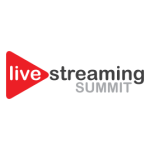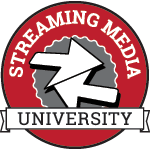
The Technical & How-To Track is for CTOs, technology managers, studio professionals, and developers who want one thing: solutions. The video ecosystem is a fragmented mix of platforms and devices: Learn from the pros how you can eliminate the bottlenecks and deliver results. Expert presenters will offer sessions on the entire video workflow, from formats to delivery to player and UI development to AI and machine learning. This is the place to go to learn real skills and improvements you can put in place as soon as you’re back in the office. And even if you’re not currently a video developer and want to learn more about how the technology works, this track is for you.
Tuesday, May 7
Track T: Technical & How-To Track
T101. How to Establish an Intelligent Multi-CDN Strategy
Tuesday, May 7: 10:30 a.m. - 11:30 a.m.
Have you been dating just one CDN for what feels like forever? While monogamy may be good for personal relationships, it can create a lot of risk when it comes to streaming media delivery. As CDN delivery continues to become more commoditized, working through the solution to have an intelligent multi-CDN solution in place is critical for widespread critical delivery at scale. This session dives into the options, providers, and solutions and examines how and what to consider. It also shares some of the “gotchas” around security and implementation that need to be accounted for in the client and infrastructure, as well as how to take it to the next level with advanced concepts.
David Hassoun, CEO, RealEyes Media
T102. How to Identify Real-World Playback Options
Tuesday, May 7: 11:45 a.m. - 12:30 p.m.
With the “end of Flash” just around the corner in 2020, you need to be using common standards to reach all of your target audiences. For those who deliver live video within a web browser, HTML5 has had plenty of time to play catch-up and surpass Flash capabilities— or has it? In this session, learn which transport technologies (or combination thereof) from HTTP, WebRTC, RTSP, and even RTMP work best, when to use them, and where to put your development dollars for maximum return.
Robert Reinhardt, Streaming Solutions Architect, videoRx
T103. A Survey of Per-Title Encoding Technologies
Tuesday, May 7: 1:45 p.m. - 2:30 p.m.
Per-title encoding techniques customize the encoding ladder to match the encoding complexity of the source, saving bandwidth on easy-to-compress videos and ensuring the quality of more complex footage. Codec specialist Jan Ozer compares the efficiency, implementation issues, and costs of multiple commercially available and open-source alternatives for live and VOD per-title encoding. Learn what per-title encoding is, how the various options work, and which is the best option for you.
Jan Ozer, Owner, Streaming Learning Center
T104. The Cutting Edge of Packaging Strategies
Tuesday, May 7: 2:45 p.m. - 3:30 p.m.
A good packaging strategy can bring numerous key benefits to your operational flexibility. This session asks panelists to talk about their own packaging challenges and strategies and looks at how the emergence of dynamic packaging can provide significant operational cost savings as well as higher levels of security and flexibility as audiences evolve and change.
Will Law, Chief Architect, Cloud Technology Group, Akamai
Dirk Giffioen, CEO, Unified Streaming
David Sayed, Principal Program Manager, Microsoft Cloud + AI Group, Microsoft Corporation
David Heppe, Commercial General Manager - Targeted Delivery Solutions, Imagine Communications
T105. Get Ready for a Multiple Codec World
Tuesday, May 7: 4:00 p.m. - 5:00 p.m.
While H.264 has dominated the last decade of streaming, the market is moving toward a new generation of codecs like VP9, HEVC, AV1, and VVC—as well as proprietary codecs—that offer significantly better compression but much more fragmented support in browsers and devices. This roundtable discusses how savvy businesses can migrate to the new technology and get the benefits of more efficient compression without sacrificing audiences.
Tarek Amara, Principal Video Specialist, Twitch
Vittorio Giovara, Manager, Engineering - Video Technology, Vimeo
Nathan Egge, Sr Manager, Audio/Video Coding, Amazon Chime
Subhrendu Sarkar, Senior Engineering Manager, Video Infrastructure & CMS, Ellation
Wednesday, May 8
Track T: Technical & How-To Track
T201. The (Live) Streaming Pro’s Toolbox
Wednesday, May 8: 10:30 a.m. - 11:30 a.m.
Having the right tools for the job allows you to work smarter, not just harder. Developing for and supporting some of the biggest live streaming events such as the Super Bowl, Olympics, and the World Cup require beefing up and refining the arsenal of tools we bring. This session covers must-have tools for monitoring, debugging, identifying, and solving problems quickly and effectively for live and on-demand streaming content. The tools include freeware, opensource solutions, paid products, and some custom tools RealEyes will share with the community. We discuss some of the gotchas and key issues to look for when dealing with major events—how to spot them and what to do on-the-fly when you have only one shot to get it right.
David Hassoun, CEO, RealEyes Media
T202. How to Build a Free Encoder/Packager With Watch Folder Operation Using Open Source Tools
Wednesday, May 8: 11:45 a.m. - 12:30 p.m.
Open source tools like FFmpeg and Bento4 are used to build massive encoding farms for high-profile premium content services, but they also serve wonderfully as simple tools for smaller developers and can deliver significant functionality with minimal programming. If you can write a batch file on Windows and have access to a Linux box, you can learn to encode and package an encoding ladder to HLS/DASH with captions and encryption and to set up a simple watch folder for drag-and-drop operation.
Jan Ozer, Owner, Streaming Learning Center
T203. Case Study—Low-Latency Live Streaming From the Deep Sea
Wednesday, May 8: 1:45 p.m. - 2:45 p.m.
The NOAA Office of Ocean Exploration and Research is the United States’ only federal organization dedicated to exploring the global ocean. Our main research ship, the Okeanos Explorer, live-streams its deep-sea explorations via satellite for scientists and the general public to participate in our explorations of the unknown. Learn how the NOAA is dealing with low-latency live streaming in a post-Flash world, and how it delivers its streams to YouTube Live.
James Rawsthorne, Telepresence Coordinator, Office of Ocean Exploration & Research, NOAA - National Oceanic and Atmospheric Administration
T204. Modular Cloud Video Workflows
Wednesday, May 8: 3:15 p.m. - 4:00 p.m.
The era of black boxes and closed software is over; operating a streaming video service in 2019 requires a modular video workflow. This is more than moving video operations to the cloud, as services must optimize for the broadest coverage on the widest range of devices, which means using the latest codecs, packaging, and DRM technologies. Codec SDKs, microservices, and docker containers are now critical components of the modern video workflow. Attendees hear what Microsoft and Beamr are doing to facilitate and accelerate modular video workflows that are ideally suited for video encoding, processing, and packaging functionality to facilitate scalability in any video service.
Tom Vaughan, VP Strategy, Beamr
Nikki Conley, Cloud Solution Architect, One Commercial Partner, Microsoft
Tracks & Special Events

Created for CEOs, CSOs, media strategists, and business development executives: This is your home at Streaming Media East. This forward-thinking track offers high-level strategic discussions where you can learn from the best where the online video economy is moving.

Created for CTOs, engineers, and developers who want one thing: solutions. The video ecosystem is a fragmented mix of platforms and devices: Learn from the pros how you can eliminate the bottlenecks and deliver results.

Sessions in this track are educational and the presentations which typically focus on products and customer case-studies, provide a good opportunity to learn more about specific technologies or vendors. Open to all conference attendees and Discovery Pass holders.

Live Streaming Summit focuses exclusively on the challenges and opportunities inherent in delivering large-scale live events and live linear channels to multiple screens. Sessions will address every step of the live video workflow, including ingestion, transcoding, management, protection, distribution, analytics, and post-event evaluation.

OTT is the future of television, and this summit is a deep dive into how broadcasters, cable & satellite operators, MVPDs, vMPVDs, and content rights holders can unlock the value of OTT and TV Everywhere.

If you're looking for deep dives into HEVC, VP9, AV1, DASH, CMAF, WebRTC, video optimization, or perceptual quality, you’ve come to the right place. Our expert speakers will help you take your video to the next level.

The Content Delivery Summit is a one-day conference that brings together carriers, telcos, ISPs, and premium content owners for a detailed look at the technology and platforms being used to deliver and accelerate web content.

Streaming Media University features world class experts delivering content-rich training. This series of workshops at Streaming Media East 2019 offers attendees the opportunity to get deep-dive training on online video and streaming technologies and provides the sound theories and practicted techniques to beome a top performer in the online video field.







